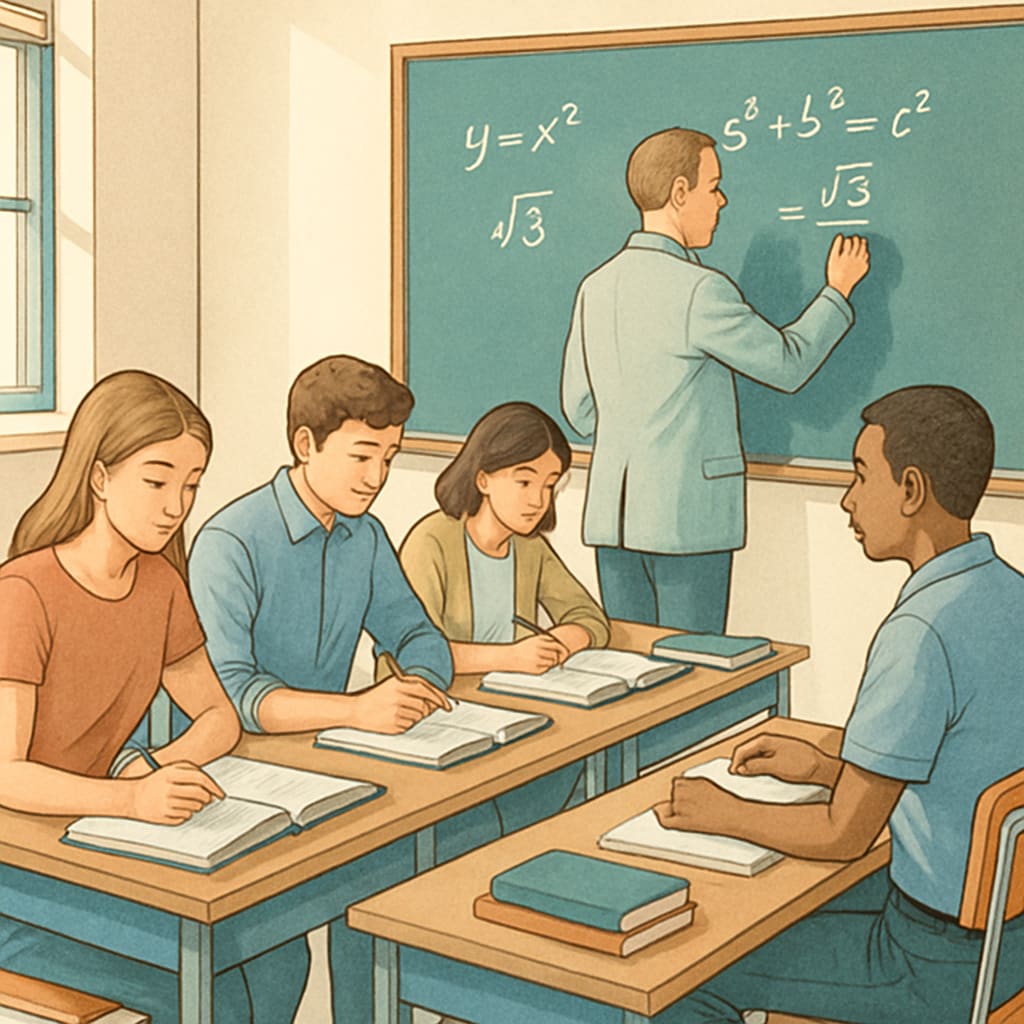Education disruptions can significantly impact a young person’s future. In the UK, many teenagers face interruptions in their schooling due to family circumstances, such as financial hardship, caregiving responsibilities, or unforeseen crises. For these individuals, finding a pathway back into education is both a challenge and an opportunity. This article examines how such youth can recover academically, emphasizing mathematics courses as a key starting point in building a comprehensive recovery plan.
Understanding the Challenges of Interruptions in Education
Interrupted schooling often creates gaps in foundational skills that are critical for academic success. According to a study by the Department for Education (DfE), young people who experience prolonged breaks in their education frequently struggle to reintegrate into traditional school settings. Factors such as lack of confidence, outdated knowledge, and difficulty adapting to structured learning environments can complicate their return.
Mathematics is often one of the most affected subjects due to its sequential nature—each concept builds upon the previous one. Without a solid grasp of earlier material, students may find themselves overwhelmed. However, mathematics also serves as a stepping stone to regaining academic momentum because of its universal application across various fields.

Why Mathematics is Crucial in Academic Recovery
Mathematics is not only a core subject but also a skill that has far-reaching implications beyond the classroom. For youth returning to education, revisiting mathematics courses provides several benefits:
- Rebuilding foundational knowledge: Mathematics reinforces logical reasoning and problem-solving skills, which are essential for other subjects.
- Boosting confidence: Achieving small milestones in mathematics can enhance self-esteem and motivation.
- Career readiness: Many professions require a basic or advanced understanding of mathematics, making it a practical choice for academic recovery.
Organizations such as the National Numeracy (National Numeracy) provide resources and frameworks to help individuals of all ages improve their mathematical skills. These tools are particularly beneficial for youth re-entering the education system.

Steps to Academic Recovery for UK Youth
Returning to school after a prolonged break requires a structured approach. Below are practical steps to ensure a successful transition:
- Assess Current Knowledge: Begin by evaluating existing skills and identifying gaps. Diagnostic tests and placement exams can help determine the appropriate starting point.
- Set Realistic Goals: Establish short-term and long-term academic objectives to provide direction and motivation.
- Focus on Core Subjects: Prioritize essential subjects such as mathematics and English to create a strong foundation for future learning.
- Utilize Online Resources: Platforms like Khan Academy and BBC Bitesize offer free, accessible materials tailored to UK curricula.
- Seek Mentorship and Support: Engaging with educational mentors or tutors can provide personalized guidance and encouragement.
Additionally, schools and local councils offer programs designed to support young people returning to education. Exploring these resources can ease the transition and ensure a smoother academic journey.
Building a Comprehensive Recovery Plan
A successful academic recovery plan should be holistic, addressing not only academic gaps but also emotional and social challenges. Youth returning to education often benefit from the following:
- Flexible learning environments: Consider part-time schooling or online courses to accommodate personal circumstances.
- Emotional support: Counseling services can help students cope with stress and build resilience.
- Peer engagement: Joining study groups or extracurricular activities fosters a sense of community and belonging.
Ultimately, academic recovery is a journey that requires patience, perseverance, and the right resources. By starting with mathematics and gradually expanding to other subjects, youth can rebuild their confidence and chart a path toward success.
In conclusion: While interruptions in education pose significant challenges, they also present opportunities for growth and transformation. With structured support systems and a focus on foundational subjects like mathematics, young people in the UK can overcome these obstacles and achieve academic success.


